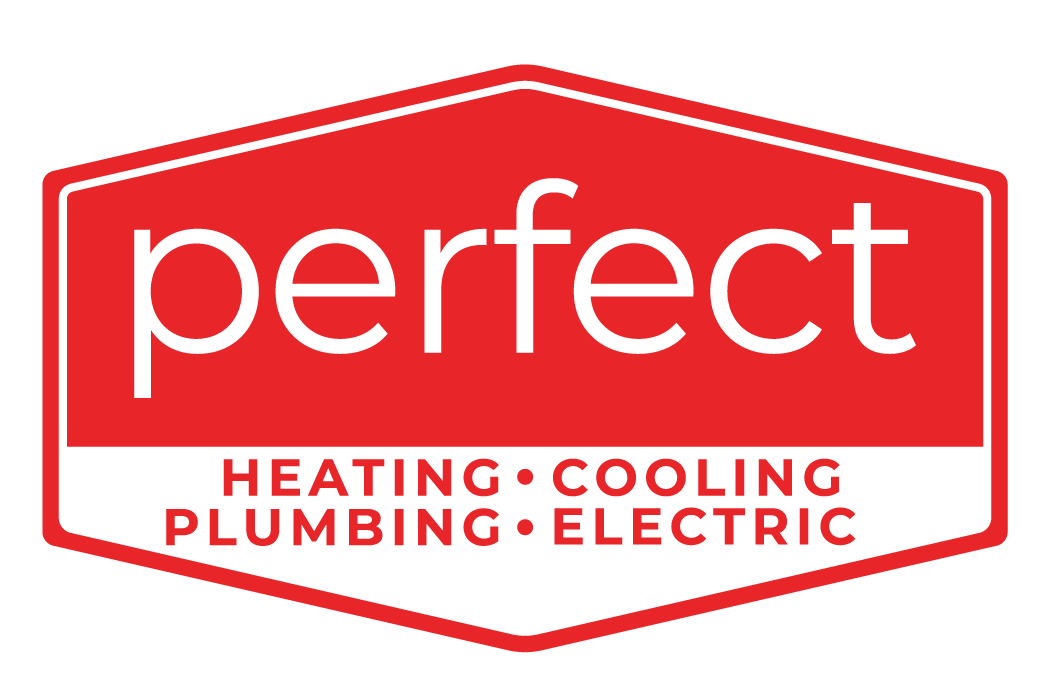
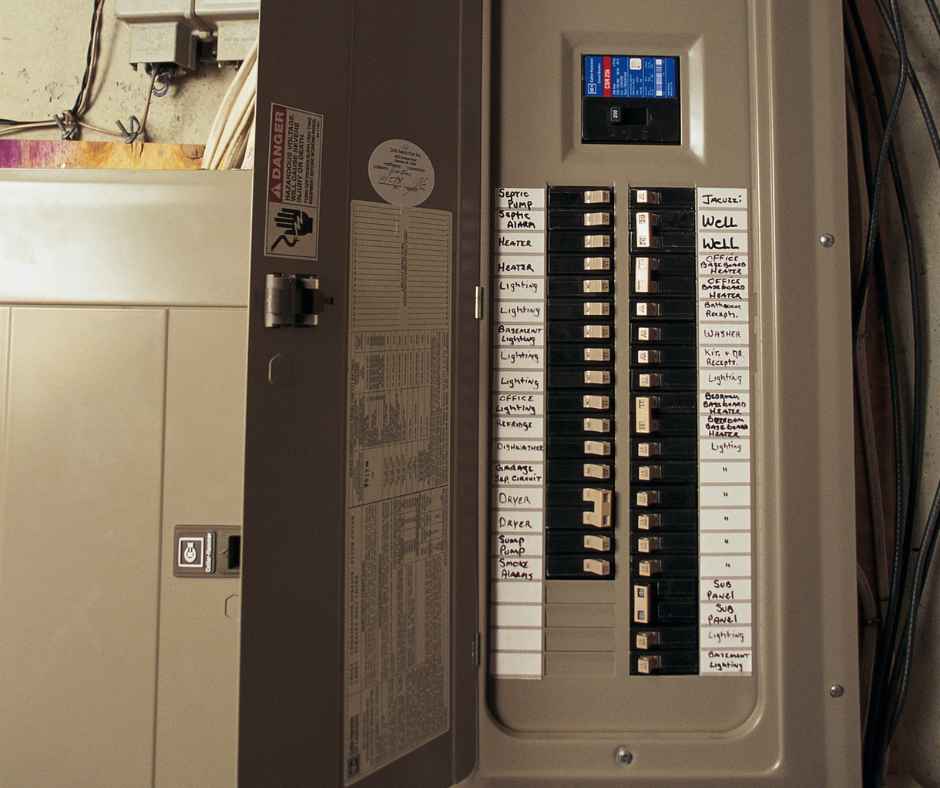
What Is An Electrical Panel?
December 12, 2024
The electrical panel, sometimes referred to as the circuit breaker box or breaker panel, is the central hub of your home’s electrical system. It’s where the electricity from the utility company enters your home, and it distributes that power to various circuits that run to different parts of your home. Understanding what an electrical panel is and how it works is key to maintaining a safe, efficient electrical system in your home.
In this guide, we’ll cover the basics of what an electrical panel is, how it works, the components involved, and when you might need an electrical panel upgrade or replacement. By understanding these fundamentals, homeowners can make informed decisions about maintaining or upgrading their home electrical panel.
What Is an Electrical Panel?
An electrical panel is a metal box, usually installed in a utility room, garage, basement, or a similar space, which houses circuit breakers or fuses. This box acts as the main distribution point for electricity in the home, taking incoming power from the utility grid and routing it to different circuits within the home. Each circuit powers specific areas or appliances, from lights and outlets to larger appliances like your HVAC system.
When you plug in a device or turn on an appliance, electricity flows from the electrical panel to that specific area. If too much electricity flows through the circuit, a breaker within the panel will “trip,” cutting off the power to prevent overheating and reduce the risk of fire or other hazards.
Components of an Electrical Panel
To better understand what an electrical panel is and its functions, it helps to look at the main components inside it:
- Main Breaker: This is a large breaker that controls the flow of electricity into the entire panel. If you need to cut off all power to your home, flipping the main breaker is how you do it.
- Circuit Breakers: Individual switches that control power to specific circuits. Each circuit breaker is rated for a specific amount of electricity, and it will “trip” or shut off when too much power is drawn.
- Bus Bars: These metal bars distribute electricity from the main breaker to the individual circuit breakers.
- Neutral and Ground Bars: These bars provide pathways for electricity to safely return to the ground, reducing the risk of electric shock and fire.
Each component plays a critical role in the safe operation of your home’s electrical system.
Circuit Breakers and How They Work
The circuit breakers within your electrical panel are essential for managing the electricity flow throughout your home. They act as safety devices, shutting off power to circuits that draw too much current, which can happen if too many devices are plugged into a circuit or if there’s a short circuit.
Each circuit breaker has a specific rating, typically 15 to 20 amps for regular circuits and up to 50 amps for high-demand circuits. If the current flowing through a breaker exceeds its rating, it will trip, cutting off the flow of electricity to prevent damage and reduce the risk of fire.
When Do You Need an Electrical Panel Upgrade?
Over time, you may find that your existing electrical panel no longer meets your home’s power needs. This situation can arise if you’re adding more appliances, undertaking a home renovation, or experiencing frequent circuit breaker trips. Here are some signs that it may be time for an electrical panel upgrade:
- Frequent Breaker Trips: If your breakers are constantly tripping, it’s likely because your current electrical panel cannot handle your home’s power needs.
- Home Renovations or Additions: Adding new rooms, appliances, or higher-demand items like hot tubs can increase your power needs and may require an electrical panel upgrade.
- Use of Power Strips and Extension Cords: If you’re regularly using multiple power strips and extension cords, your current panel may not have enough circuits to meet your needs.
- Outdated Electrical Panel: Homes built before 1960 often have outdated panels with fuses instead of circuit breakers. Upgrading to a modern panel with circuit breakers can improve safety and efficiency.
- Inconsistent or Dimming Lights: If lights frequently dim when you plug in or turn on appliances, it can indicate an overloaded electrical panel.
If you’re experiencing these issues, an electrical panel upgrade can increase the safety and efficiency of your home’s electrical system.
The Process of an Electrical Panel Replacement
An electrical panel replacement or upgrade is a complex task that requires professional expertise. A licensed electrician will assess your current system, calculate your home’s electrical needs, and install a new panel that meets current electrical codes and safety standards.
Here are the general steps involved in an electrical panel replacement:
- Assessment: The electrician will evaluate your home’s electrical usage and determine if an upgrade or replacement is necessary.
- Choosing the Right Panel: Based on your home’s needs, the electrician will recommend an appropriate panel size, typically ranging from 100 to 200 amps or more for larger homes.
- Installation: The old panel is disconnected, and the new panel is installed. This process may involve rewiring some circuits and ensuring all connections are properly grounded.
- Inspection and Testing: After installation, the system is inspected and tested to ensure that it meets local codes and functions safely.
Benefits of an Electrical Panel Upgrade
Upgrading your electrical panel has several advantages, from improved safety to the capacity for future power needs. Here are some of the key benefits:
- Increased Safety: Modern electrical panels have built-in safeguards that reduce the risk of electrical fires and shocks.
- Higher Capacity: A new panel can handle the power needs of modern appliances and devices.
- Better Efficiency: An upgraded electrical panel can improve the efficiency of your home’s electrical system, reducing energy waste.
- Support for Home Automation: Many new panels are compatible with smart home systems, allowing for remote monitoring and control.
An electrical panel upgrade can enhance your home’s electrical infrastructure, offering peace of mind and added value to your property.
Electrical Panel Installation: Why Hire a Professional?
Electrical panel installation or replacement is not a DIY project. The process involves working with high-voltage electricity and requires a deep understanding of electrical systems. Hiring a professional electrician ensures the job is done safely, following all local codes and regulations.
Professional electricians have the expertise to safely install your new electrical panel, test the system for issues, and ensure that all components function as intended. Proper installation is essential to avoid risks like electrical fires, malfunctioning breakers, or overloaded circuits.
Upgrade Your Electrical Panel with Perfect Home Services
An electrical panel plays an essential role in the safety and efficiency of your home’s electrical system. Whether you’re experiencing frequent breaker trips or planning to expand your home’s electrical capacity, knowing when and why to consider an electrical panel upgrade or replacement is key to maintaining a safe and reliable power supply.
For expert advice and professional electrical panel installation, trust Perfect Home Services. Our licensed electricians can assess your needs, recommend the right panel, and ensure a safe, compliant installation. Contact Perfect Home Services today to schedule an electrical panel upgrade and keep your home’s electrical system running smoothly.
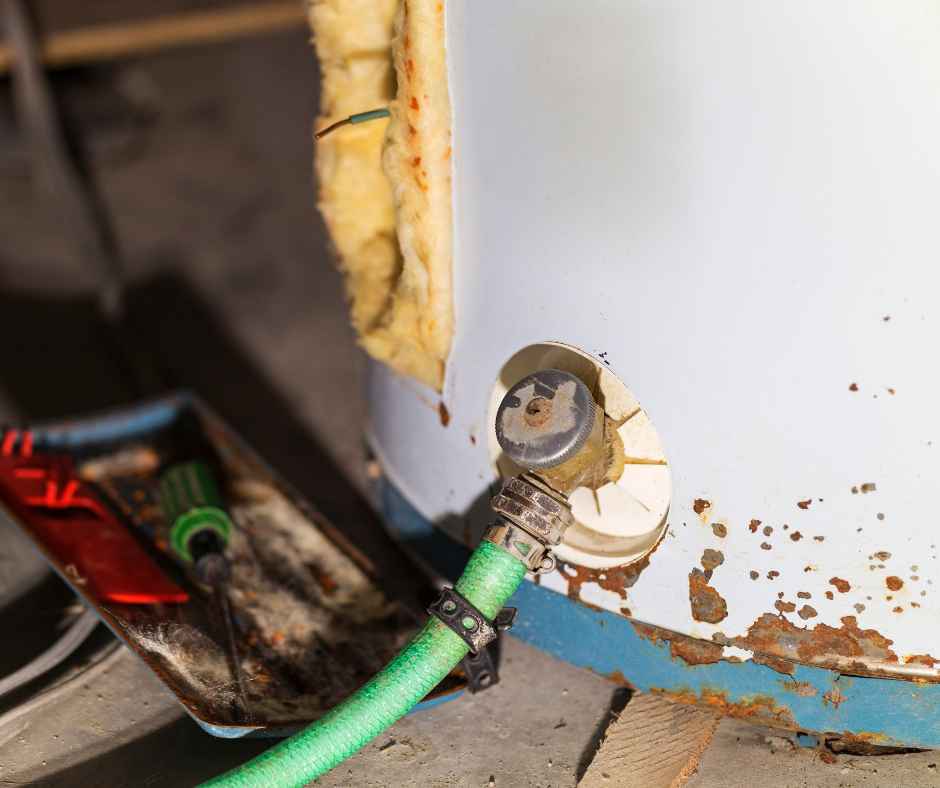
How Long Does a Water Heater Last?
April 10, 2025
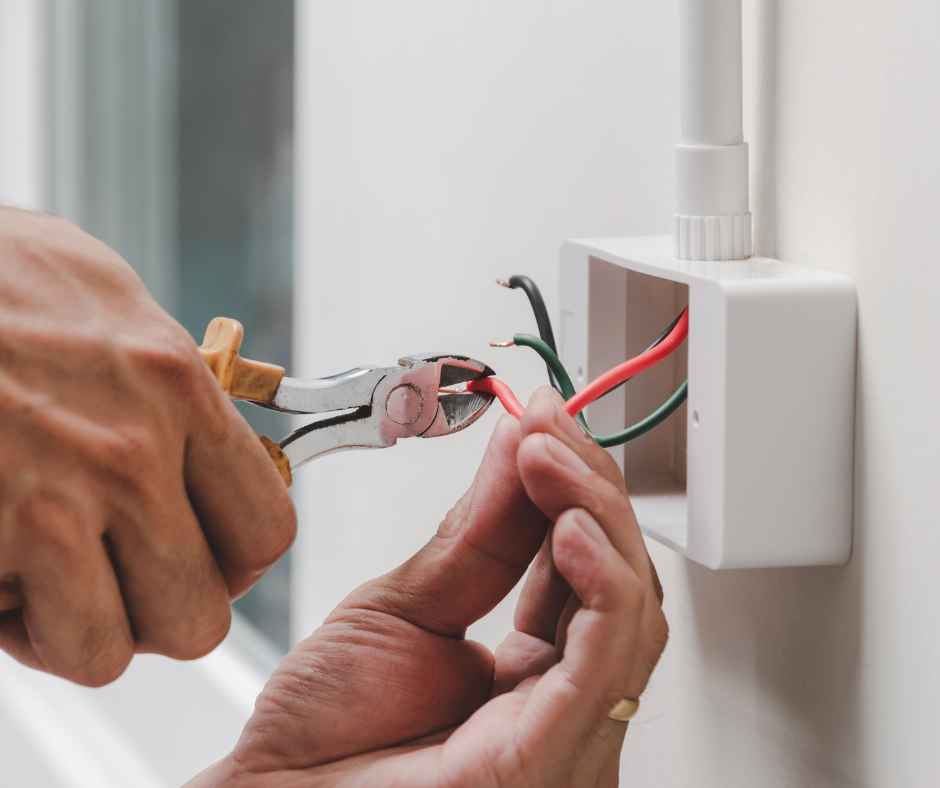
How to Troubleshoot Common Electrical Issues in Your Home
March 13, 2025
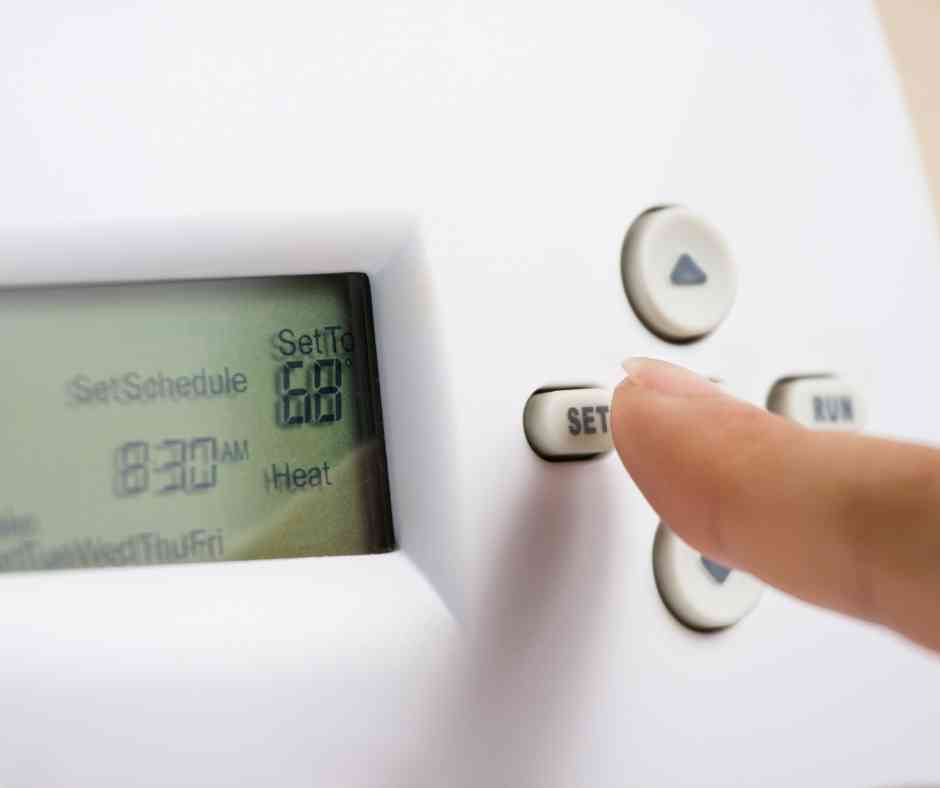
What Does Hold Mean on a Thermostat?
February 13, 2025
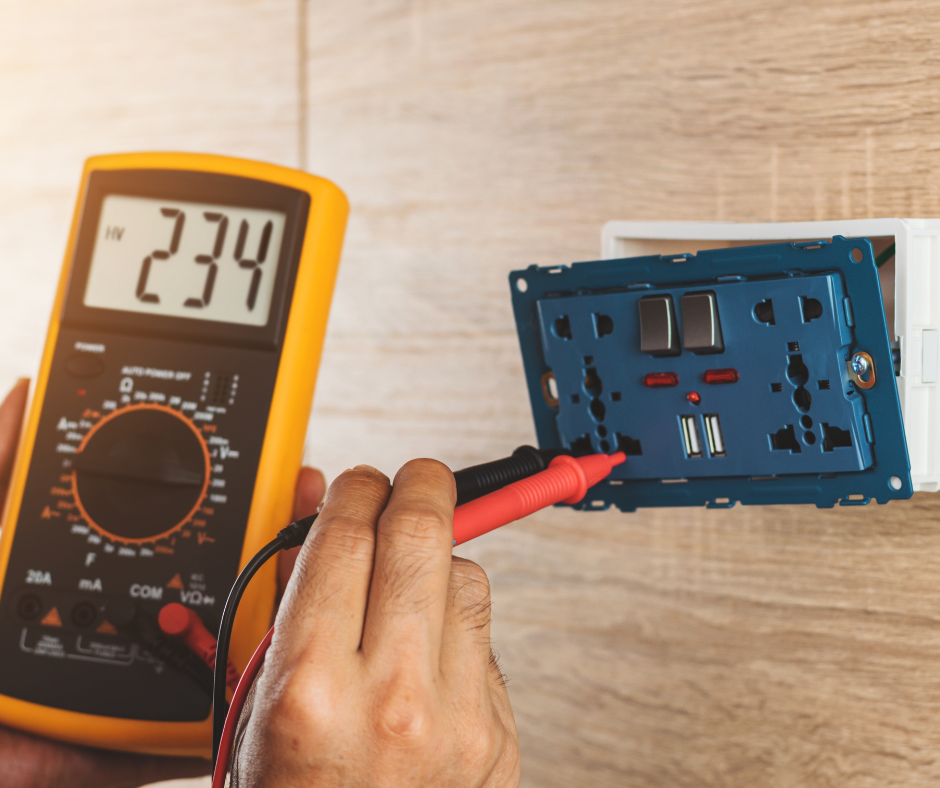
Home Electrical Inspection Checklist
January 6, 2025

How to Prepare Your Air Conditioner for the Aurora and Naperville Summers
April 18, 2024
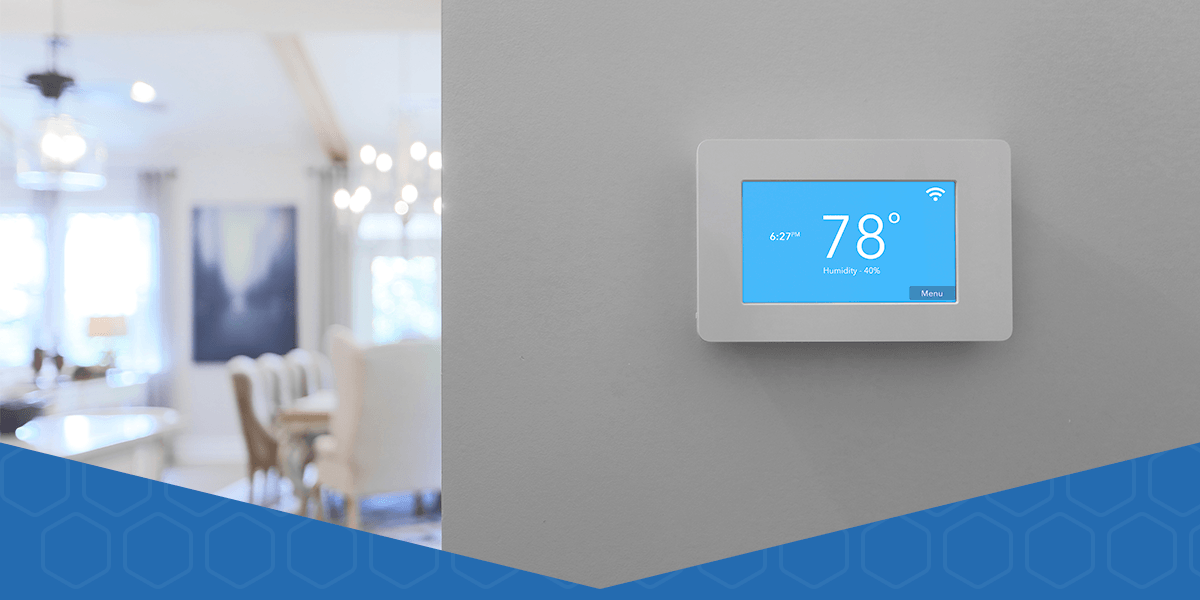
Guide to Smart Thermostats
March 14, 2024


